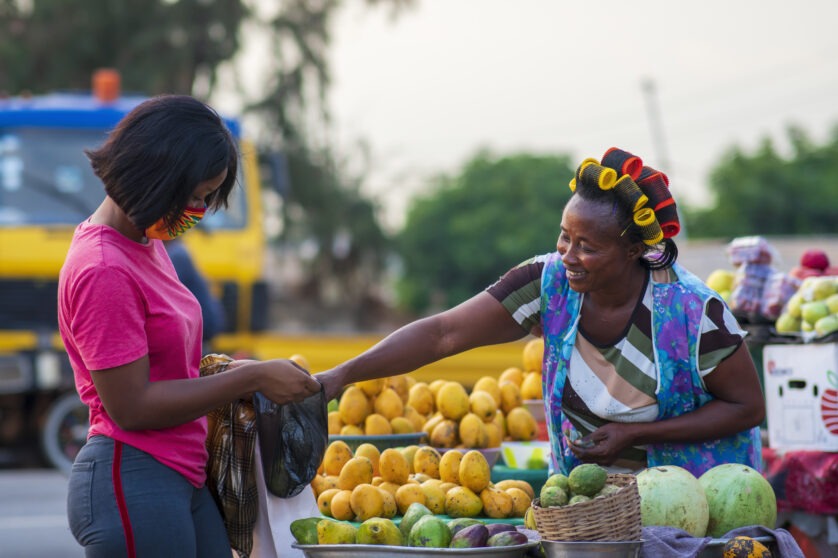This March, the International Centre for Tax and Development (ICTD) launched a month-long campaign highlighting its extensive work on gender and taxation, in celebration of Women’s History Month.
Here’s a quick recap of a diverse range of ICTD content exploring this area of tax research – from thought-provoking publications, both old and new, to reading lists, to video features.
Keep scrolling 👇
1. Policy Brief: ‘Towards Gender Equality in Tax and Fiscal Systems: Moving Beyond the Implicit-Explicit Bias Framework’
Kicking off the campaign on International Women’s Day (IWD) no less, we published a new policy brief together with Brookings Institution that argues how the prevailing implicit and explicit bias framework, in use since the mid-1990s, is “no longer fit for guiding policy towards improved tax equity and gender equality.”
In the brief, authors Caren Grown and our Research Director Giulia Mascagni note: “[T]he ‘tax-bias’ framing creates the impression that the solution to rectifying the underlying problem lies in reforming the tax system.” Instead, they propose an alternative approach that “starts with a clear focus on the policy goal of gender equality, from the perspective of a broader feminist fiscal policy agenda.”
#IWD corner: The subject of gender & taxation has gained increasing traction in policy circles.
In our latest policy brief, @giulia_mascagni & @CarenGrown propose an alternative approach to ‘tax-bias’ framing.
Find it here: https://t.co/2YRUbB1phb#TaxTwitter #InspireInclusion pic.twitter.com/UqtzMfVJFX
— International Centre for Tax and Development (@ICTDTax) March 8, 2024
2. Working Paper: Engendering Taxation: a Research and Policy Agenda
While increased attention has been paid to the gender dimensions of taxation in recent years, there is still limited research on the subject, particularly in lower-income contexts. In this working paper, Anuradha Joshi and ICTD’s Jalia Kangave and Vanessa van den Boogaard identify knowledge gaps and map broader issues that are relevant for understanding the gendered impact of taxation.
They make four broad observations, among which is how existing research focuses on formal direct taxes, which are less relevant for women in lower-income contexts given their high participation rates in the informal economy. Overall, the authors conclude that tax policies can be made gender-neutral by paying careful attention to where they affect women differentially.
♀️ #IWD2024 corner: How do tax policies affect women in lower-income countries?
📄Anuradha Joshi, Jalia Kangave & @VVandenboogaard review the existing literature & related debates on #gender and #tax in this context.
Their findings here➡️https://t.co/iCHC40bH2u #TaxTwitter pic.twitter.com/rA5dPMCs1b
— International Centre for Tax and Development (@ICTDTax) March 22, 2024
Drawing from this paper and a score of other ICTD research on gender and taxation, our Research Assistant Deanndre Chen highlights in this blog the realities of women in low-income countries. Noting that women make up a significant portion of the informal sector and are concentrated in the group of lowest earners, she reflects on the consequences of this on how taxation then impacts both development and gender equality outcomes.
3. Book recommendations: IWD edition
On World Book Day, coincidentally also in March, we launched our monthly staff book recommendations starting with a list featuring all women authors (full disclosure: they’re not all about tax – but hey, perfect for a break!). The inaugural list was compiled by our Research Officer Adrienne Lees. View it here:
📚On #WorldBookDay, we debut our new series of monthly staff #BookRecommendations, the first meticulously curated by our Research Officer Adrienne Lees featuring books by women authors.
Save this thread🧵:#InternationalWomensDay #IWD2024
— International Centre for Tax and Development (@ICTDTax) March 7, 2024
4. The Gender of Tax, a poem
In this video, our Associate Research Fellow Jalia Kangave treats us with a reading of an original poem on gender and tax:
5. ICTD in Focus: Episode 3
And to cap off the month, we released the latest installment of ICTD in Focus, a video series featuring ICTD researchers and their work. For the third episode, we featured our doctoral fellow Sripriya Srivatsa who is the ICTD’s thematic focal person for gender and tax.
Watch it here:
She likewise wrote a blog, entitled ‘In search of equality: Can taxes be good advocates?‘, in which she reflected on her experience over the last two years collecting qualitative evidence in Ethiopia, Rwanda, and Sierra Leone for a forthcoming co-authored paper looking at the gendered drivers of tax compliance.
In the blog, Sripriya notes that, in the face of increasing adoption of evidence-based policy strategies, one must consider “through a gendered lens what this evidence entails and how data is collected.”
ICTD’s work on gender and tax
Being among the Centre’s main thematic areas of focus, ICTD has produced several publications exploring the relationship between gender and taxation. For instance, in August last year, we published a working paper by Seid Yimam and Yalew Mekonnen probing whether there are benefits to employing more women in tax administration, with a specific focus in Ethiopia. It found that there are “significant contributions” in doing so, and further underlined the need to empower women through continued leadership training and mentoring programmes.
In March 2021, we published research by Jalia Kangave, Ronald Waiswa, and Nathan Sebaggala that explored whether women were more tax compliant than men. By looking at tax administrative data from the Uganda Revenue Authority, the authors find that measuring differences in compliance is “more challenging than the research literature indicates.”
Likewise, in May 2020, we co-published a report by Anuradha Joshi, Jalia Kangave and Vanessa van den Boogaard that looked at the small but growing body of literature on the gender effects of taxation in Global South contexts. Its findings suggest that explicit biases against women continue to exist in some countries around personal income taxes, but is of less concern to a majority of women in the global south mainly because few women work in the formal sector and are subject to personal income tax.



